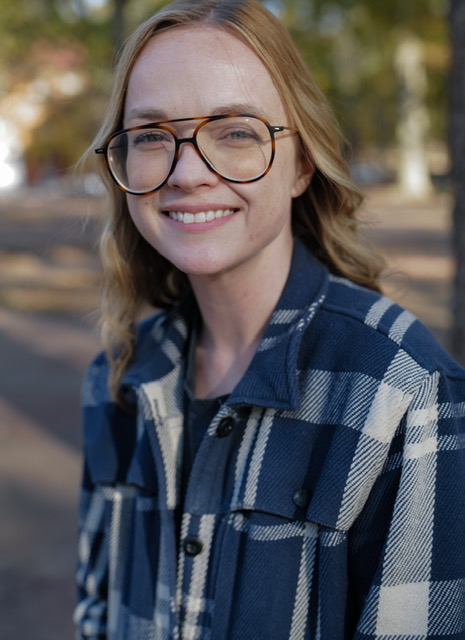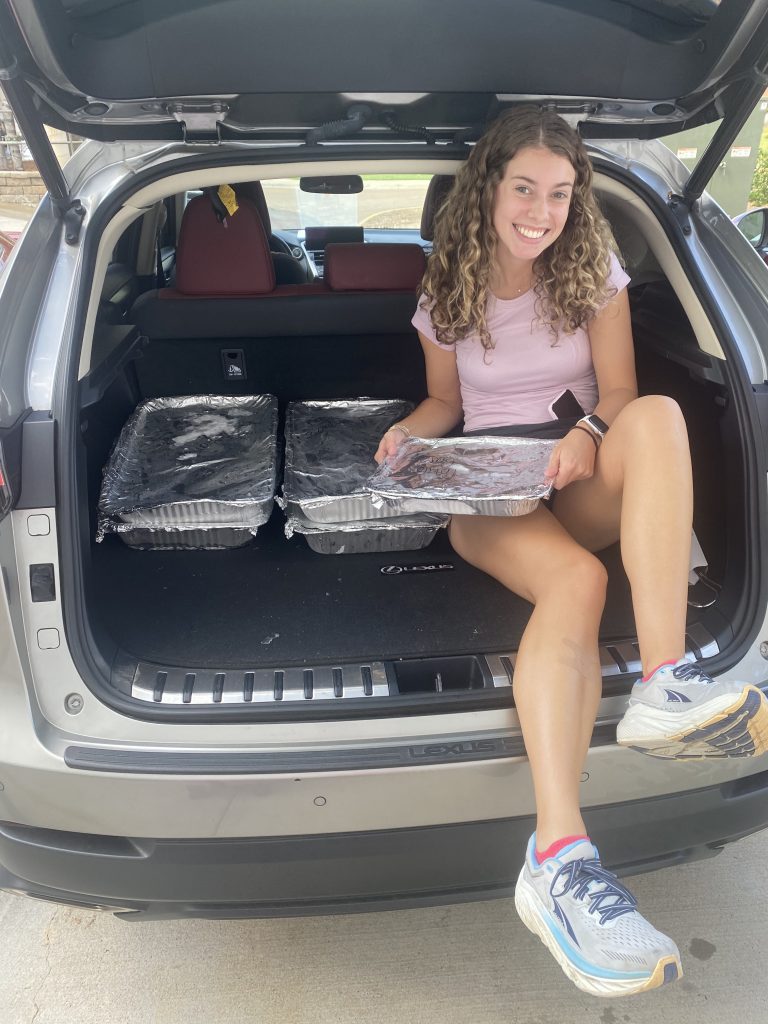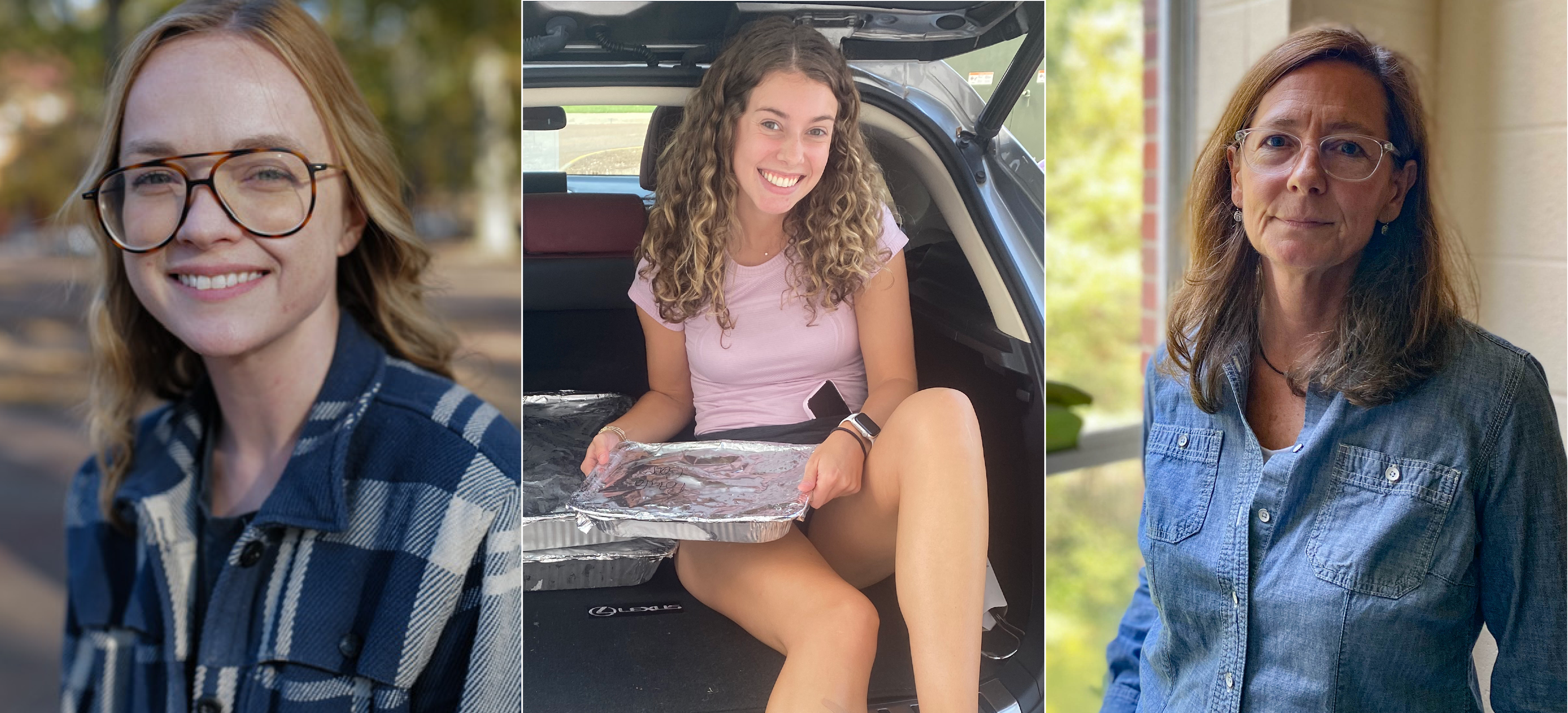Kendall McDoland

When Hurricane Katrina struck the Gulf of Mexico in 2005, Kendall McDonald witnessed it as a 13-year-old, living on the Mississippi Gulf Coast. Experiencing this catastrophic natural disaster sparked her passion for helping to address the impact of climate change.
McDonald, now 31, joined the Office of Sustainability at the University of Mississippi in 2015 and has since become its assistant director. The office is designed to promote student engagement with sustainability issues.
One of the challenges, McDonald said, is student disinterest. Students may be aware of climate change and other environmental problems, but she says they often are hesitant to get involved in ways to help reverse it.
“The day-to-day needs of being a student, being involved and having a social life” often prevent students from wanting to take action themselves, according to McDonald.
Programs offered by the Office of Sustainability include the Green Grove Gameday Recycling Program, which is a volunteer-led initiative in which students distribute bags throughout the Grove, to promote recycling among tailgaters, and collect and sort recycled items.
These practices ultimately lower emissions that would otherwise come from landfills, which can make for hotter temperatures. McDonald’s office also works within the university structure to encourage sustainability.
“We want to address the university’s current operations and encourage research and advocate and consult on ways to make the university more sustainable as an institution with a very complex network of operational needs,” McDonald said.
Even with the difficulties that come with promoting sustainability and action among the student population, McDonald is hopeful about doing something about climate change.
“If we know that we are not the only people in our community that care about it, then we have the tools that we need to effectively collect and organize action as a campus community with this major issue because it really is going to take pretty much all of us working together.”
Story by Jacob Latil
Annalaura Swinea

Tuesday afternoons on the University of Mississippi’s Sorority Row, Annalaura Swinea carries oversized containers of food from a kitchen that serves roughly 500 students in the Kappa Delta sorority and places the meals in the trunk of her Lexus SUV.
The campus’ Greek life organizations are required to provide three meals daily for their members, Swinea said, which creates a lot of extra portions. However, students can opt to donate meals they don’t eat.
“We decided that rather than keeping so much food for ourselves, we wanted to share it with people in our community who may not have access to food and healthy things the way that we do,” explained Swinea.
She makes three or four trips, sometimes with the help of kitchen staff, loading her vehicle with trays of food topped with aluminum foil. Ten minutes away, in a row of modest brick homes near Baptist Hospital in Oxford, Swinea delivers approximately 120 meals each week to two subsidized housing communities in Oxford. The mission impacts roughly 60 people per week.
“I get to interact with these people, and I just see that things are so much bigger than my immediate desires. There’s so much more that can be done in the world,” said Swinea, who notes meal leftovers often end up in landfills. “It’s such a waste of resources across the board from the very inception.”
The U.S. Environmental Protection Agency estimates that yearly food loss and waste is equivalent to the CO2 emissions from 42 coal-fired power plants, excluding the loss of resources and methane emitted from food waste in landfills. Through her food deliveries, Swinea has been working to save energy in food production by decreasing waste and increasing student awareness since she started the program in the fall of 2022.
Story by McKenzie Cox
Dr. Tiffany Bensen

Tiffany Bensen is an instructional associate professor of biology at the University of Mississippi. Raised an only child in rural Idaho, Bensen recounts her days spent in the great outdoors. Her love of nature fed her passion for studying ecology and landed her at the University of California-Davis for graduate school. Now, she teaches courses that often include an exploration of the environmental threats facing the planet.
“I feel like we have been sounding the alarm for so long . . . and I know we’re doing things . . . but the resistance is so frustrating — the resistance to change, the resistance to reality,” Bensen said.
As Generation Z progresses through young adulthood, preparing to create environmental policy and systemically change global institutions, Bensen says her role as an educator is to lead students in a climate-conscious direction, adjusting her curriculum as needed to best convey such goals.
“I try to take a personal perspective on it,” Bensen said. “There are things at a personal level that we can be doing, because collectively we can make a difference.”
Story by Raegan Settle

